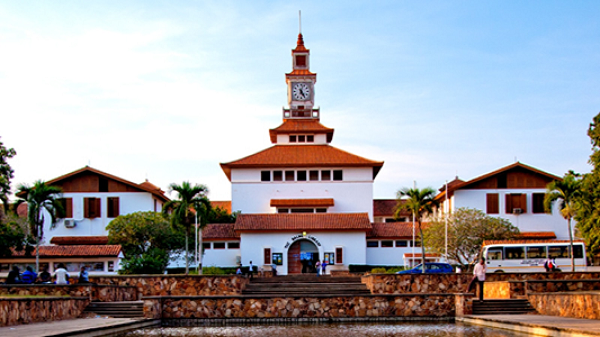OVERVIEW
Diagnostic radiography is the medical science concerned with using various forms of radiation to produce highquality clinical images, which aid in the diagnosis and subsequent treatment of injury and disease.
Diagnostic radiography is a technology dependent discipline but draws on the basic sciences with medical, biological and physiological sciences alongside application of practical training in a clinical setting.
A wide range of sophisticated technological equipment for different imaging modalities are used in diagnostic radiography. They include: X-ray, ultrasound, computed tomography (CT) scanners, magnetic resonance imaging (MRI) and mammography.
Diagnostic radiographers (also referred to as Radiologic Technologists and Medical Radiation Technologists) work in hospitals, clinics, medical laboratories and private practice.
AIMS AND OBJECTIVES
At the end of the programme, graduates are expected to:
• Be able to accurately demonstrate anatomical structures on a radiograph or other image receptor.
• Be able to determine exposure factors to achieve optimum radiographic techniques with minimum radiation exposure to the patient, self and others.
• Be able to evaluate radiographic images for appropriate positioning and image quality.
• Exercise independent judgement and discretion in the technical performance of medical imaging procedures.
• Provide patient care and comfort, show respect for patients’ rights and dignity and act in acceptable professional manner at all times.
• Participate in continued professional development programmes.
• Manage a radiography department in at least a district hospital and advise hospital management on radiography issues.
INDUSTRY/GLOBAL TRENDS
The demand for radiology services across the globe is on the rise. Studies attributes this increasing demand to factors such as the global increase in illnesses, the increase in world population, the rise in urbanization and worldwide healthcare programmes and reforms.
Trends in diagnostic radiography include Fusion & Multimodality Imaging and Pre-Clinical Research. Fusion & Multimodality Imaging allows for running image scans from the same unit at the same time, creating a more complete set of diagnostic information.
Pre-clinical research focuses on drug development using diagnostic radiography as a key technology to assess, accelerate and guide the use of new therapeutic options.
ASSESSMENT
Students will be assessed on the basis of completed assignments, examinations, workplace learning and projects or other methods as outlined in specific subject outlines.
CAREER PROSPECTS
Graduates of diagnostic radiography work in a range of healthcare settings including local, district, and regional clinics and hospitals or private establishments
ENTRY REQUIREMENTS (SSCE/WASSCE)
General Admission
i. Applicants who have appropriate passes in Core Mathematics, English Language, Chemistry, Physics, Biology and Elective Mathematics shall be admitted directly into the first year (Level 100) of the 4-year undergraduate degree programmes.
ii. Applicants who have completed Level 100 Biological Science with Physics and have a minimum CGPA of 2.0 can be admitted to the Second Year (Level 200) of the 4-year undergraduate degree programmes.
iii. Applicants who satisfy other requirements for admission, i.e. GCE Advanced Levels or equivalent with the appropriate passes may be admitted directly into the second year (Level 200) of the 4-year undergraduate degree programmes.
iv. A candidate with a Bachelor’s degree in Biological or Physical Sciences from a recognized University may be considered for admission on the recommendation of a special committee appointed by the Dean.
The special committee shall vet transcripts of the candidate as well as course contents of the degrees, with a view to determining suitability of degrees of previous training and make appropriate recommendations that shall include the level of admission to the Dean.
Admissions under this section may be subject to such conditions as may be approved by the Admissions Board.
Other Admission Certificate and Diploma applicants may be considered for admission to Level 200 of the BSc (Diagnostic Radiography/ Therapy Radiography) degree programme.








